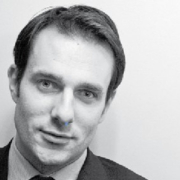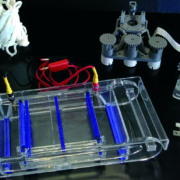In September, Unilever announced a €1bn investment to improve the sustainability of its cleaning brands from the ground up. European Biotechnology spoke to Dr Neil Parry, R&D programme director of biotechnology and biosourcing at Unilever about the goals of Clean Future.
ADVERTISEMENT
Abigail Herron from Aviva Investors describes why AMR is a blind spot for investors and which action is needed to change it.
SPCs offer up to five and a half years of additional protection after patent expiration for pharmaceuticals in order to compensate the patent holder’s inability to exploit their inventions while products undergo lengthy regulatory approvals.
Prior to Danish Genmab A/S’s recent licence option deal with AbbVie Inc, Rentschler Biopharma has extended its collaboration with Genmab. European Biotechnology spoke with Rentschler Biopharma SE’s SVP Global BD Federico Pollano about the CDMO’s expertise in DuoBody® molecules production and the expansion of the CDMO’s U.S. production site in Milford.
If reopening the economy after the prolonged shutdown was the end of the beginning, then the successful development of vaccines and therapeutic antibodies has the potential to be the beginning of the end.
Intellectual Property Providing access to medicines at affordable prices while maintaining incentives for the originators to invest into significant innovations is a balance that’s hard to find. Product hopping is a strategy for originators to minimise the erosion of their sales that has caught the attention of regulators and courts.
Intellectual Property Providing access to medicines at affordable prices while maintaining incentives for the originators to invest into significant innovations is a balance that’s hard to find. Product hopping is a strategy for originators to minimise the erosion of their sales that has caught the attention of regulators and courts.
Immatics Biotechnologies has landed a potential US$1.1bn deal with GlaxoSmithKline (GSK) to find novel cancer targets on solid tumours and to direct TCR-T cell therapies against them. European Biotechnology spoke with Dr Harpreet Singh, CEO of Immatics Biotechnologies.
Every year, it’s the same: in January, investors are scratching their heads, searching to find investment ideas that could ensure the greatest return/performance. Given the current valuation, can 2020 deliver windfall surprises for European names?
While open innovation may be seen as a way of cutting costs by shutting down in-house R&D in favour of promoting spin-offs, start-ups, and biotech SMEs, the open science movement aims to establish a completely new model for how to spur innovation. Eliminating intellectual property-related restrictions, open biology promises rapid and local production of biomaterials, diagnostics, or genome-edited crops in countries with no established IP system.








